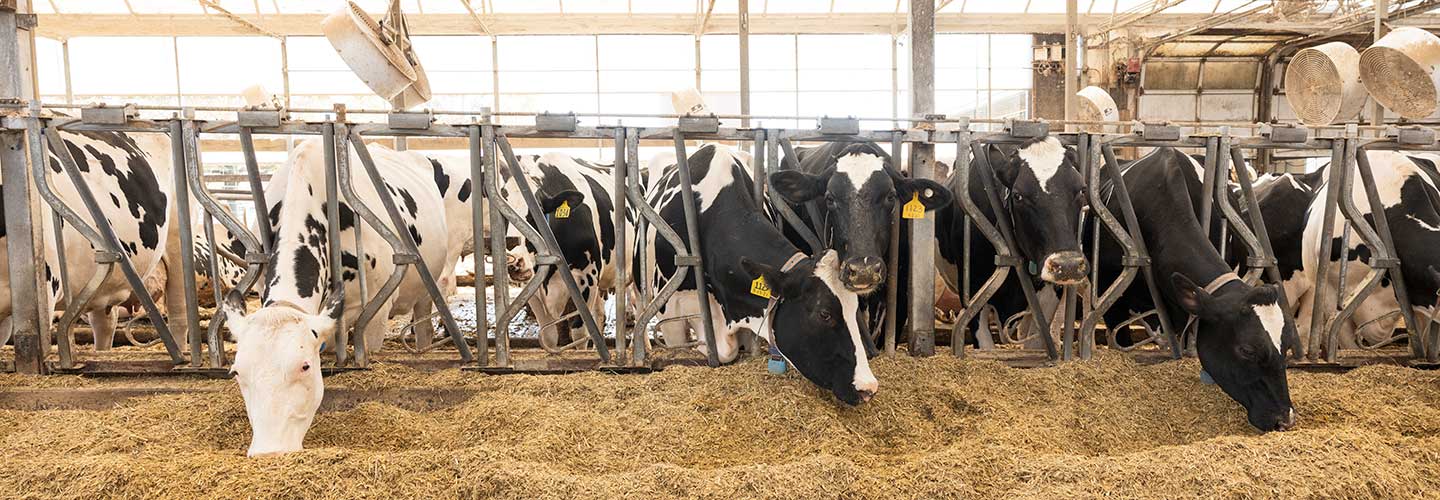
Marshak Dairy
The Marshak Dairy provides an easily accessible working dairy farm for research trials. In addition, the Dairy serves as a laboratory for teaching students on topics related to cow healthcare, preventive medicine, nutrition and food safety.
About Us
The Marshak Dairy is named in honor of Robert Marshak, the ninth dean of the School of Veterinary Medicine whose support was instrumental in establishing the farm. Built in 1996, the greenhouse dairy was the first of its kind and was recognized as a dairy of distinction in 1998. The greenhouse design uses natural lighting and excellent ventilation within the barn to promote a healthy environment for the cows.
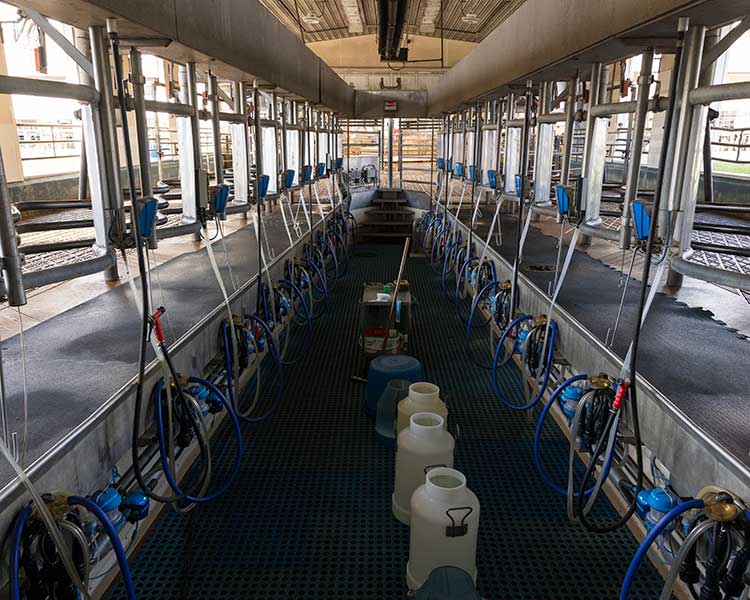
Facilities
The lactating cow barn has 160 free stalls divided into four different pens. There are an additional 40 stalls that can be used as either free stalls or tie stalls if individual feed intake data is needed.
The barn’s alleys are flushed twice daily with recycled water that is filtered through a separator. The separator filters out manure solids, which are then used to fertilize crops on New Bolton fields which in turn produce feed for the cows.
Water from the manure storage facility is also used for fertilization and irrigation, further ensuring nutrients are recycled as efficiently as possible.
Herd Demographics
The Dairy herd is composed of approximately 180 milking cows, 30 dry cows and 180 calves and heifers.
The Holstein herd produces about 70 lbs of milk per cow every day for a total of 1,500 gallons of milk per day. This milk is sold and marketed through Land-O-Lakes Dairy Cooperative.
The cows are milked twice per day in a double ten herringbone parlor that identifies each cow and measures her milk production and her activity during the previous 12 hours. After milking the lactating cows return to straw bedded free stalls with rubber mats which are cleaned and re-bedded daily.
We’ve also recently installed rubber flooring in four of the pens to increase the comfort and welfare of the herd.
All adult cows are fed a total mixed ration (TMR) formulated by veterinarians for to meet each group’s specific nutritional requirements for health, production, pregnancy and growth.
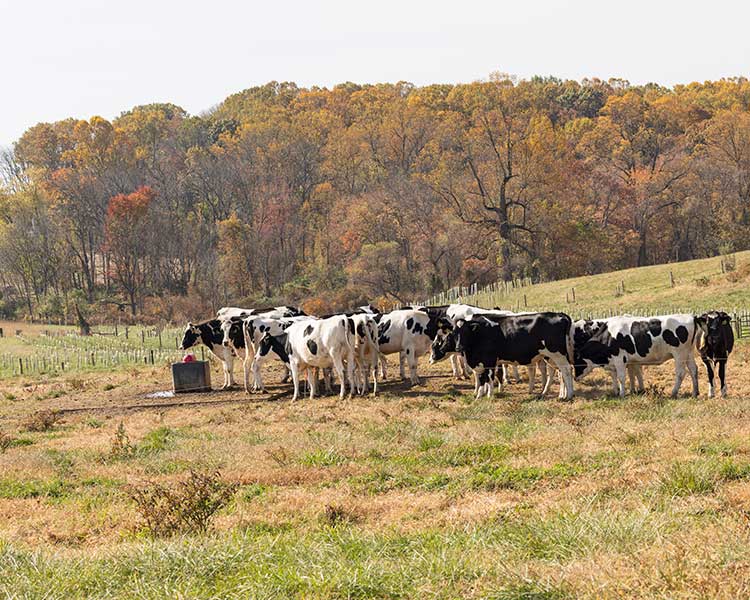
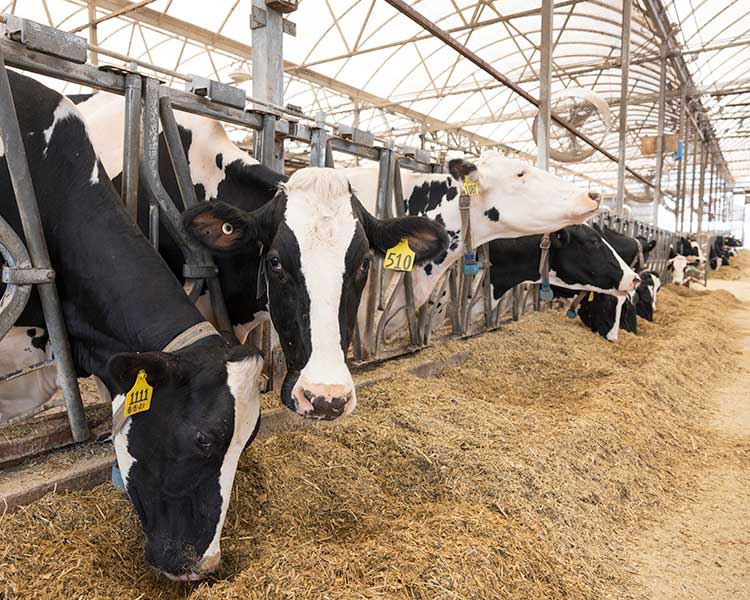
Cow Life Cycle
After cows become pregnant they are dried off 60 days prior to their due date and housed in the dry cow free stall barn. Here they are fed a specific diet that reduces the risk of illness by balancing energy, protein and minerals such as calcium.
Cows give birth in sand-bedded box stalls that allow individual care and isolation from pathogens potentially carried by herdmates.
After birth calves are fed four quarts of colostrum within 12 hours to ensure adequate passive immunity is transferred from cow to calf.
Calves are raised in individual hutches that minimize disease transmission and allow them to grow at their own rate.
After weaning they are moved into larger hutches in groups of three. This allows a smoother transition to the next larger group by ensuring calves already have social interactions with some calves in the new group.
At 750 to 800 lbs of body weight, heifers are bred through artificial insemination and calve at an average age of 22 months.
The dairy uses a contract heifer grower to raise animals from approximately four months of age. They return to the farm after being diagnosed pregnant at least 60 days.
Teaching
One of the main objectives for the Marshak Dairy is to provide a laboratory for teaching students on topics related to cow healthcare, preventive medicine, nutrition and food safety. In addition to veterinary students, high school, college and veterinary technician students spend time at the dairy in various capacities.
The dairy is available to students and instructors of varying capacities. People interested in using the dairy as part of their curriculum should contact Linda Baker.
Research
Providing an easily accessible working dairy farm for research trials is the Marshak Dairy’s other main objective. Research projects have largely focused on nutrition, environmental sustainability, mastitis, and cow comfort.
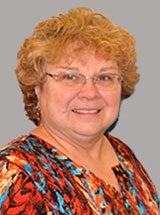
Director, Marshak Dairy
Linda Baker, VMD
Professor of Clinical Dairy Production Medicine
Join Us Today
The Marshak Dairy continues to look for interesting and valuable research projects and students interested in participating in them. People interested in conducting research at the dairy should contact Linda Baker.
Find Us
University of Pennsylvania
School of Veterinary Medicine
New Bolton Center
382 West Street Road
Kennett Square, PA 19348
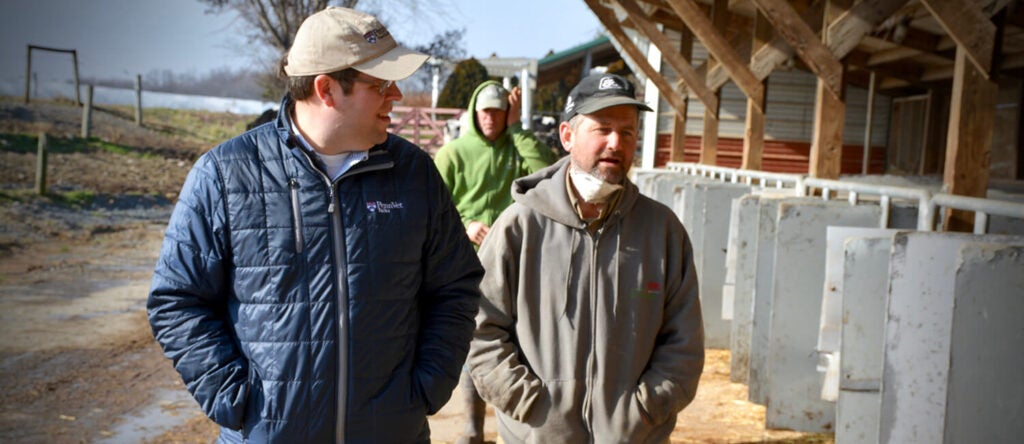
For Improved Profit Margins, the Dairy Doctor is in (link is external)
For Dr. Joe Bender, what goes on in the environment surrounding an animal is just as important as what’s going on inside of it. As a veterinarian and assistant professor…
